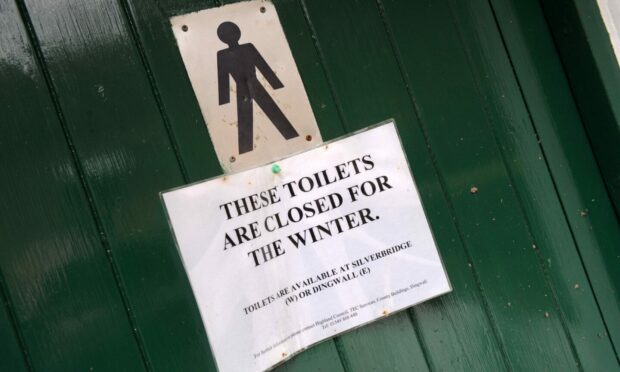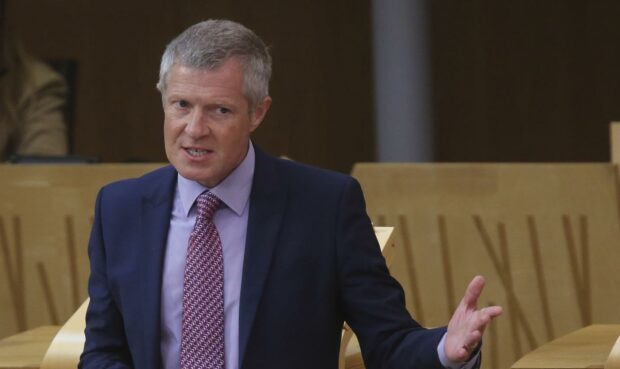Communities across northern Scotland have lost close to a quarter of their public toilets in the last 15 years, new figures show.
Liberal Democrat MSP Willie Rennie blamed years of “underfunding” by the SNP government for the “sad state of affairs”.
He feared it had created an “invitation to public urination” in some areas, and demanded a “substantial programme” of work to improve access to facilities.
The Scottish Lib Dems asked local authorities for data on public toilets and received responses from 19 councils.
Shetland Islands recorded the biggest drop in the north, as the number of public toilets fell by more than a third, from 28 to 18.
There was a 29% fall in the number of public toilets in the Highland Council area, decreasing from 106 in 2007 to 75 last year.
Highland Council came under fire in 2018 over a controversial plan to close toilets across the region.
Meanwhile, a quarter of public toilets in Aberdeen city closed in the period, down from 12 to nine.
And one fifth of facilities in Argyll and Bute have shut to the public since 2007, a decrease from 70 to 56.
In the Orkney Islands, four out of the area’s 50 public toilets have closed.
No figures were provided for Aberdeenshire, Moray or the Western Isles.
Three councils – Clackmannanshire, East Dunbartonshire and South Lanarkshire – said they had no public toilets left open in 2022.
Mr Rennie, a former Scottish Lib Dem leader, said the figures showed the “cost to communities” of a decade and a half of Scottish Government underfunding.
“Toilets are not just about public convenience, for some the lack of accessible bathrooms can prevent them enjoying public spaces, while in other areas it has become an invitation to public urination,” he said.
“That’s a sad state of affairs for our country to be in but it is an inevitable consequence of the decisions that successive SNP administrations have taken.
“Scottish Liberal Democrats want to see a substantial programme of capital works to provide more public toilets, alongside better car parking, electric charging points and waste disposal points.
“Beyond that there needs to finally be a commitment from the Scottish Government not to treat local authorities as simply subservient bodies which can live off the scraps of the budget.
“Councils need long term funding deals and the power to invest in their communities.”
What did the Scottish Government say?
A Scottish Government spokeswoman said it recognised the challenge faced by local councils in delivering services and maintaining facilities.
“The entire country is having to make difficult choices, including government and local authorities, but we have managed to find an extra £570 million for councils for 2023-24 on top of last year’s budget allocations,” she said.
“The Scottish Government is building flexibility and autonomy into how budgets can be spent; it is up to local authorities to decide how to best allocate their budgets to meet local priorities.”


